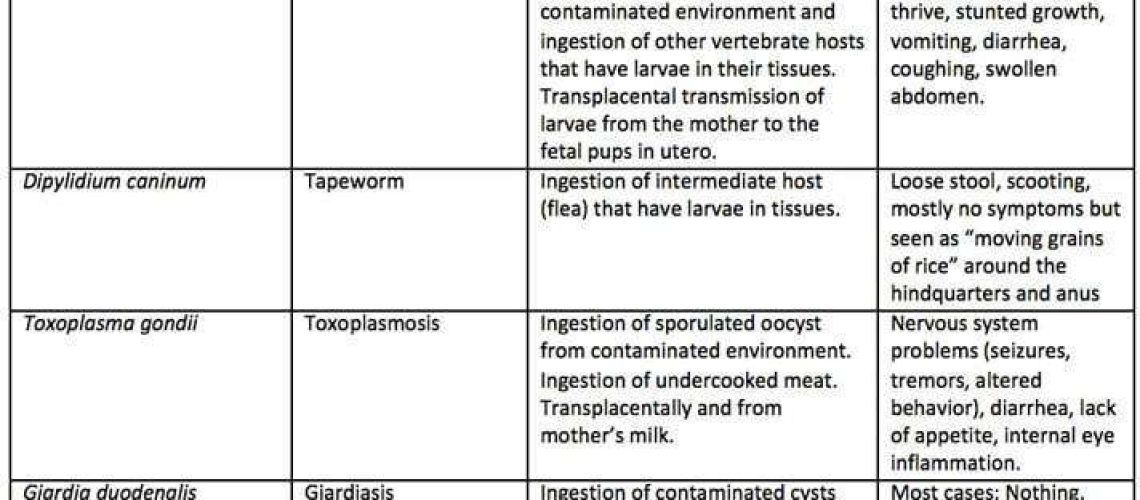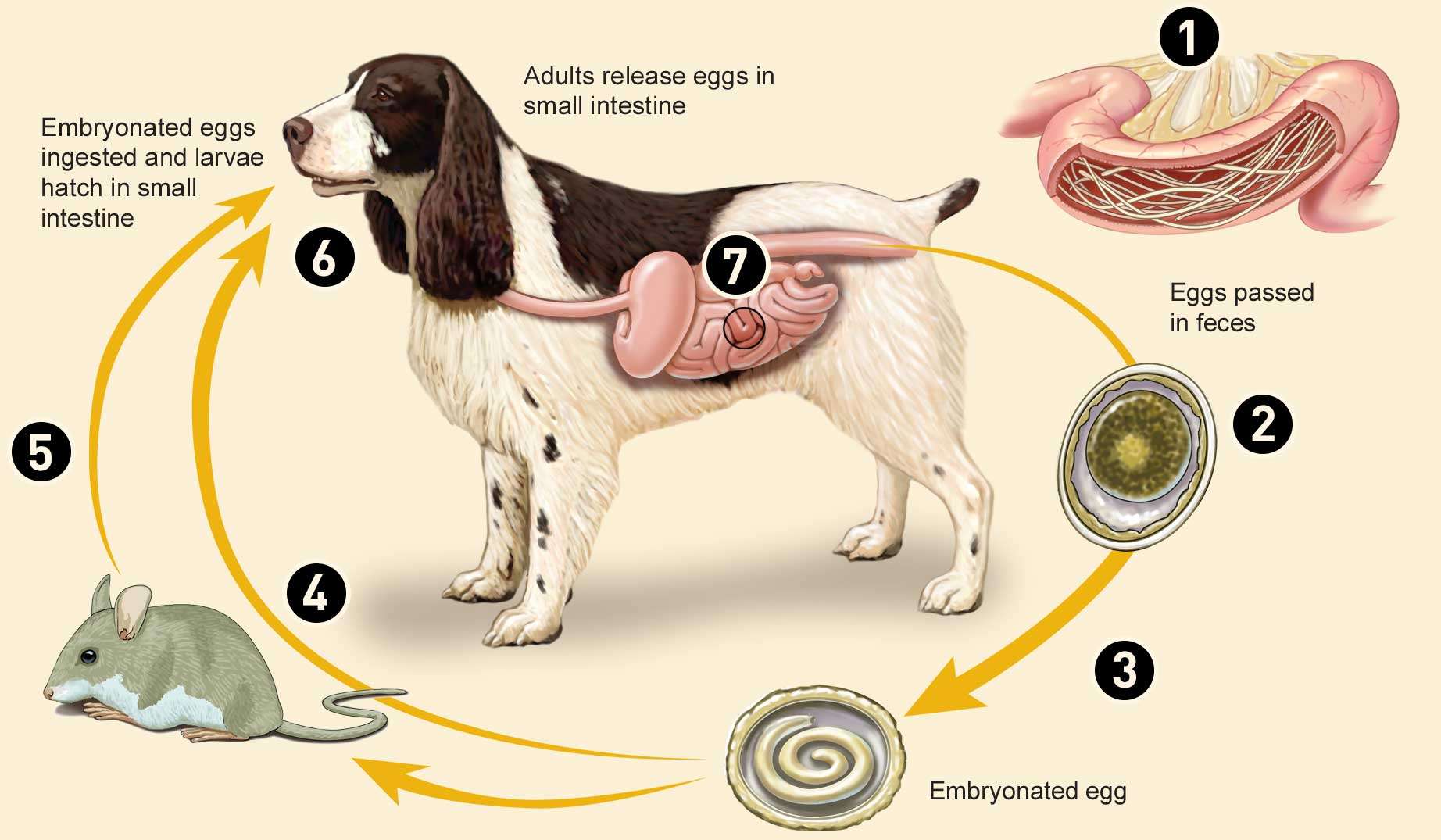Key Takeaways:
- Deworming should be done regularly as a preventive measure to keep your dog healthy.
- The frequency of deworming depends on various factors such as the age, lifestyle, and health condition of your dog.
- Puppies should be dewormed more frequently than adult dogs, usually starting at 2 weeks of age.
- Consult with your veterinarian to determine the appropriate deworming schedule for your dog based on their specific needs.
- Regular fecal examinations can help identify any worm infestations and guide the timing of deworming treatments.
Are you a proud dog owner who wants the best for your furry friend? If so, then understanding how often you should deworm your dog is essential to their overall health and well-being. Deworming is not just a routine procedure, but a crucial step in preventing harmful parasites from wreaking havoc on your dog's body. In fact, did you know that approximately 34% of dogs are infected with intestinal parasites at any given time? By delving into this topic, you will gain valuable insights on the importance of regular deworming and how it can significantly improve your dog's quality of life. So, if you're ready to become a responsible and informed pet owner, let's explore the fascinating world of deworming together!
What is deworming and why is it important for dogs?
Deworming is the process of giving medication to dogs to get rid of internal parasites, such as worms. These parasites can live inside a dog's body and cause various health problems if left untreated. Deworming is important because it helps prevent these parasites from causing harm to your furry friend.
When dogs have worms, they can experience symptoms like diarrhea, weight loss, vomiting, and a dull coat. In severe cases, worms can even lead to anemia or blockages in the intestines. By regularly deworming your dog, you can help keep them healthy and free from these pesky parasites.
Why should I deworm my dog?
Deworming your dog is essential for their overall well-being. Here are a few reasons why it's important:
- Preventing health issues: Worms can cause various health problems in dogs, including digestive issues and malnutrition. Regular deworming helps prevent these issues from occurring.
- Protecting other animals: Some types of worms can be transmitted from dogs to other animals or even humans. By deworming your dog, you're also protecting the health of other pets and family members.
- Maintaining a clean environment: Worms produce eggs that are passed through a dog's feces. If left untreated, these eggs can contaminate the environment and infect other animals or reinfect your dog.
How does deworming work?
The specific medication used for deworming depends on the type of worm infestation your dog has. Most medications work by either killing the worms or paralyzing them so they can be expelled from the body through bowel movements.
It's important to follow the dosage instructions provided by your veterinarian and give the medication as directed. Some medications may require multiple doses to effectively eliminate all the worms.
When should I deworm my dog?
Puppies are more susceptible to worms and should be dewormed every two weeks until they are three months old. After that, dogs should be dewormed at least every three months, or as recommended by a veterinarian.
If you notice any signs of worm infestation in your dog, such as worms in their stool or changes in their appetite, it's important to consult with a veterinarian for proper diagnosis and treatment.
How often should I give my dog medicine to get rid of worms?
Regular deworming is crucial for maintaining your dog's health.
To effectively get rid of worms in your dog, it is recommended to follow a deworming schedule provided by your veterinarian. The frequency of administering the medication depends on various factors such as your dog's age, lifestyle, and risk of exposure to parasites. Puppies are usually more susceptible to worms and may require more frequent treatments compared to adult dogs.
Typically, puppies should be dewormed every two weeks until they are three months old, then monthly until they reach six months. After that, adult dogs should be dewormed at least every three months. However, if your dog spends a lot of time outdoors or has a higher risk of exposure to parasites due to their environment or activities (such as hunting or interacting with other animals), more frequent deworming may be necessary.
Remember:
- Consult with your veterinarian to determine the most appropriate deworming schedule for your specific dog.
- Stick to the recommended dosage and administration instructions provided by the medication manufacturer.
- If you suspect your dog has been reinfected with worms or shows any signs of illness, consult with your veterinarian for further guidance.
Can worms make my dog sick? What are the signs?
Worm infestations can have detrimental effects on your dog's health if left untreated.
Worms can cause a range of symptoms in dogs, indicating their presence in the body. Some common signs that your dog may have worms include:
- Vomiting and diarrhea
- Weight loss despite a normal appetite
- A swollen or bloated abdomen
- Dull coat and poor overall condition
- Coughing or difficulty breathing (in cases of lungworm infection)
- Visible worms in the feces or around the anus
If you notice any of these signs, it is important to consult with your veterinarian for proper diagnosis and treatment. Regular check-ups and fecal examinations are essential for early detection of worm infestations, even if your dog appears healthy.
When are dogs more likely to get worms?
Dogs are at a higher risk of getting worms in certain situations.
There are specific circumstances when dogs are more susceptible to acquiring worms. These include:
- Puppies: Young puppies can be born with worms transmitted from their mother or may acquire them through contaminated environments.
- Outdoor activities: Dogs that spend a lot of time outdoors, especially in areas where other animals frequent, have an increased risk of exposure to worm eggs or larvae present in the environment.
- Poor hygiene: Dogs that come into contact with feces from infected animals or consume prey such as rodents can easily contract worms.
- Lack of preventive measures: Failure to administer regular deworming medication and neglecting proper sanitation practices can leave dogs vulnerable to worm infestations.
To minimize the risk, it is crucial to maintain good hygiene practices, regularly deworm your dog as recommended by your veterinarian, and avoid exposing them to potentially contaminated environments whenever possible.
What types of worms can affect dogs?
Different types of worms can pose health risks for dogs.
There are several types of worms that can affect dogs, including:
- Roundworms: These are the most common intestinal parasites in dogs and can be transmitted through contaminated soil or ingestion of infected animals.
- Hookworms: Dogs can contract hookworms by ingesting larvae from the environment or through skin contact. They can also be passed from mother to puppies during nursing.
- Tapeworms: Dogs usually acquire tapeworms by ingesting fleas or small mammals infected with tapeworm larvae.
- Whipworms: Whipworm infections occur when dogs ingest whipworm eggs present in contaminated soil or feces.
Each type of worm requires specific treatment, so it is important to consult with your veterinarian for an accurate diagnosis and appropriate medication. Regular deworming helps prevent these parasites from causing harm to your dog's health.
Natural ways to prevent worms in dogs
You can take proactive measures to help prevent worm infestations in your dog naturally.
In addition to regular deworming prescribed by your veterinarian, there are some natural methods you can incorporate into your dog's routine to help prevent worm infestations:
- Maintain a clean living environment: Regularly clean up your dog's waste and dispose of it properly to minimize exposure to worm eggs or larvae present in feces.
- Promote good hygiene: Practice proper handwashing after handling soil, feces, or potentially contaminated objects. This reduces the risk of inadvertently transmitting worms between animals and humans.
- Avoid raw or undercooked meat: Feeding your dog cooked food helps reduce the risk of contracting certain types of worms, such as tapeworms.
- Use natural remedies: Some natural products, like certain herbs or essential oils, may have worm-repellent properties. However, it is important to consult with your veterinarian before using any natural remedies to ensure their safety and effectiveness.
While these measures can help reduce the risk of worm infestations, they are not a substitute for regular deworming medication prescribed by your veterinarian. Combining preventive strategies provides the best protection for your dog's health.
How can I tell if my dog has worms?
There are visible signs that can indicate the presence of worms in your dog.
Determining whether your dog has worms requires observation and sometimes professional diagnosis. Here are some signs that may indicate a worm infestation:
- Visible worms in the feces or around the anus
- Vomiting or diarrhea, possibly with blood
- A change in appetite or weight loss
- A swollen or bloated abdomen
- Coughing or difficulty breathing (in cases of lungworm infection)
- Lethargy or decreased activity levels
If you notice any of these signs, it is crucial to consult with your veterinarian for proper diagnosis and treatment. Your veterinarian may perform a fecal examination to identify the specific type of worms present and prescribe appropriate medication. Regular check-ups and preventive deworming are essential for maintaining your dog's overall health and well-being.
In conclusion, it is recommended to deworm your dog every three months to keep them healthy and prevent the spread of parasites. Regular deworming can help protect your dog from potential health issues and ensure their overall well-being.
How often do you give a dog a dewormer for worms?
Deworming is a necessary procedure for pets as they are often prone to harmful parasites like worms that can make them ill. This treatment usually needs to be done every three to four months to ensure the removal of worms from their stomach.
Do you deworm your dog every month?
At present, it is advised to deworm dogs on a monthly basis during the summer season. However, if winters are less severe or if there are young children present, it may be suggested to deworm them monthly throughout the year. Additionally, there are other types of parasitic worms like hookworms and whipworms, for which the fecal test can provide beneficial information.
How do you know when to deworm a dog?
The presence of worms or worm fragments in the stool is a common indication that your pet requires a dewormer. These worms often resemble spaghetti or rice. If you observe worms or worm pieces in your pet's fur, especially around the back end or tail, it is also a sign that they need to be dewormed.
Can you deworm a dog too often?
It is not beneficial to deworm a puppy or dog too frequently. In fact, doing so can have negative consequences, such as the dog developing a tolerance to the medication, which is something you want to avoid.
How much does it cost to deworm a dog?
The price of deworming medication differs depending on the veterinary clinic, the product used, and the weight of your pet. However, Hutchison provides the following estimates as a general reference: For a medium-sized dog, oral dewormer costs around $15-$20 per dose, while topicals and injections range from $15 to $35 per dose.
Does Heartgard protect against worms?
The ingredients in Heartgard Plus are Ivermectin and Pyrantel Pamoate. These tablets provide protection against heartworms, roundworms, and hookworms, but they do not protect against tapeworms.

















